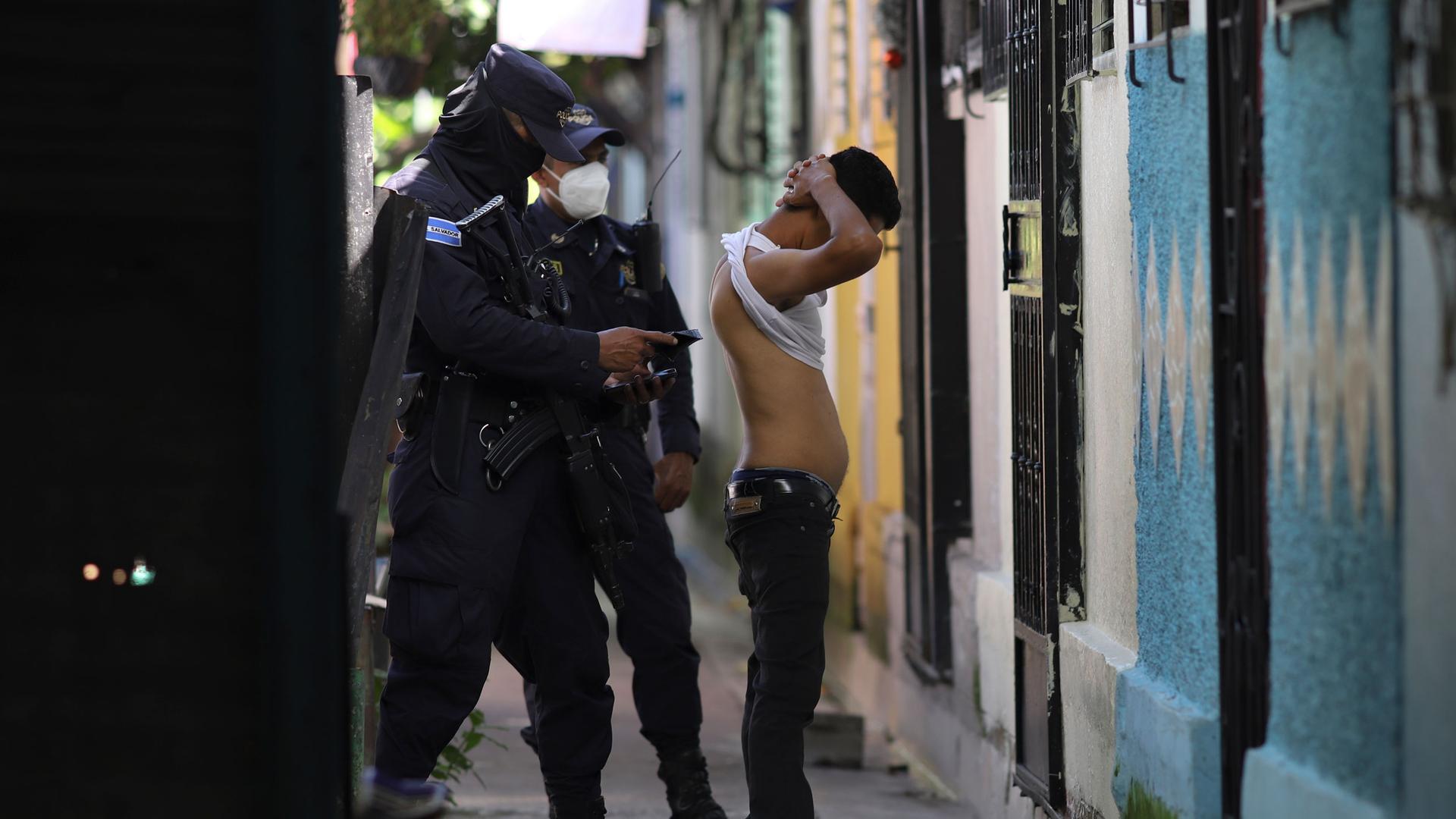Jose Potes traveled to El Salvador from Colombia in January hoping to find work.
But the journey turned into a nightmare the following day, when the 24-year-old welder was arrested by a military patrol as he left a shopping mall with a friend.
“They took us to a police station, and they strip-searched us,” he said. “Then they started to take photos of our tattoos.”
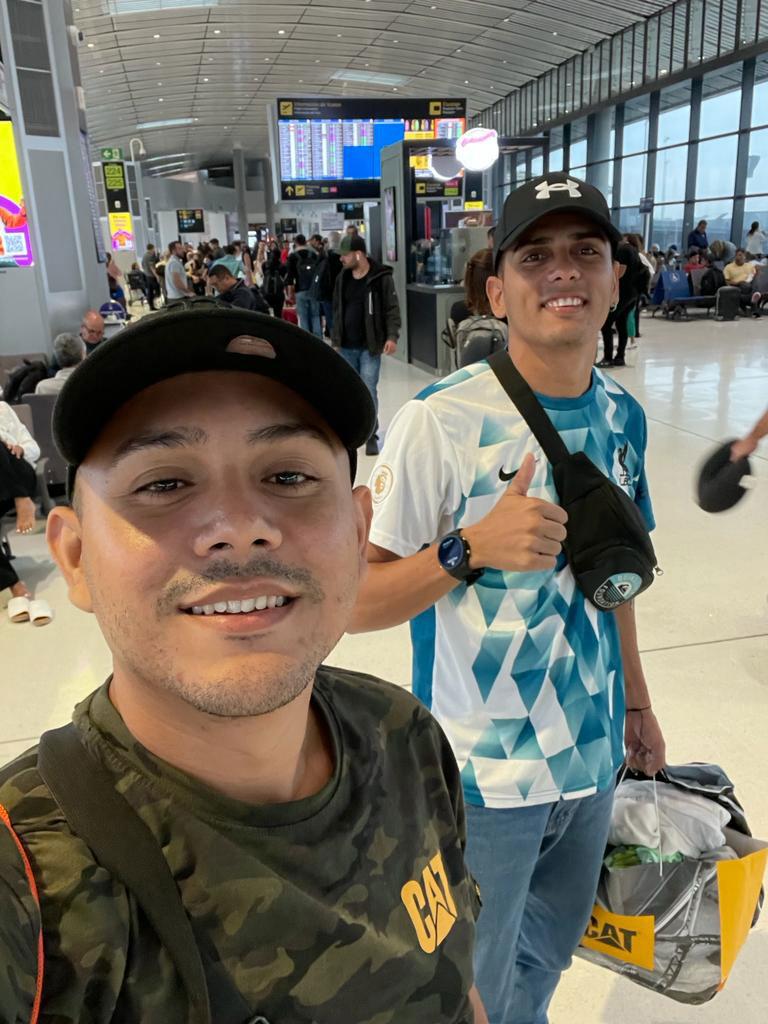
In El Salvador, thousands of people have been imprisoned over the past 15 months as the government tries to stop gang violence through a law known as the “state of exception.”
The law expands the police’s powers to detain suspects, and enables judges to keep them in prison for an unlimited amount of time while their cases are investigated.
Many citizens have said they are content with the crackdown despite the suspension of civil liberties, because security has improved greatly in the Central American country.
But others warn the police have gone too far — and are now even arresting foreign visitors, including citizens of the US, Panama, Guatemala and Colombia.
Potes ended up spending four months in Salvadoran jails, where cells are crammed with prisoners who have been accused of belonging to gangs.
Now, he is speaking about his ordeal from his home in the Colombian town of Riofrio, where he arrived in May, after his story made headlines in Colombian media outlets, and he was released by Salvadoran officials.
Potes said that he went to El Salvador because he heard it was a safe country where he could earn wages in US dollars and send money to his family.
He has a tattoo with his grandmother’s name that covers the left half of his chest, and also shows some hands holding a rosary.
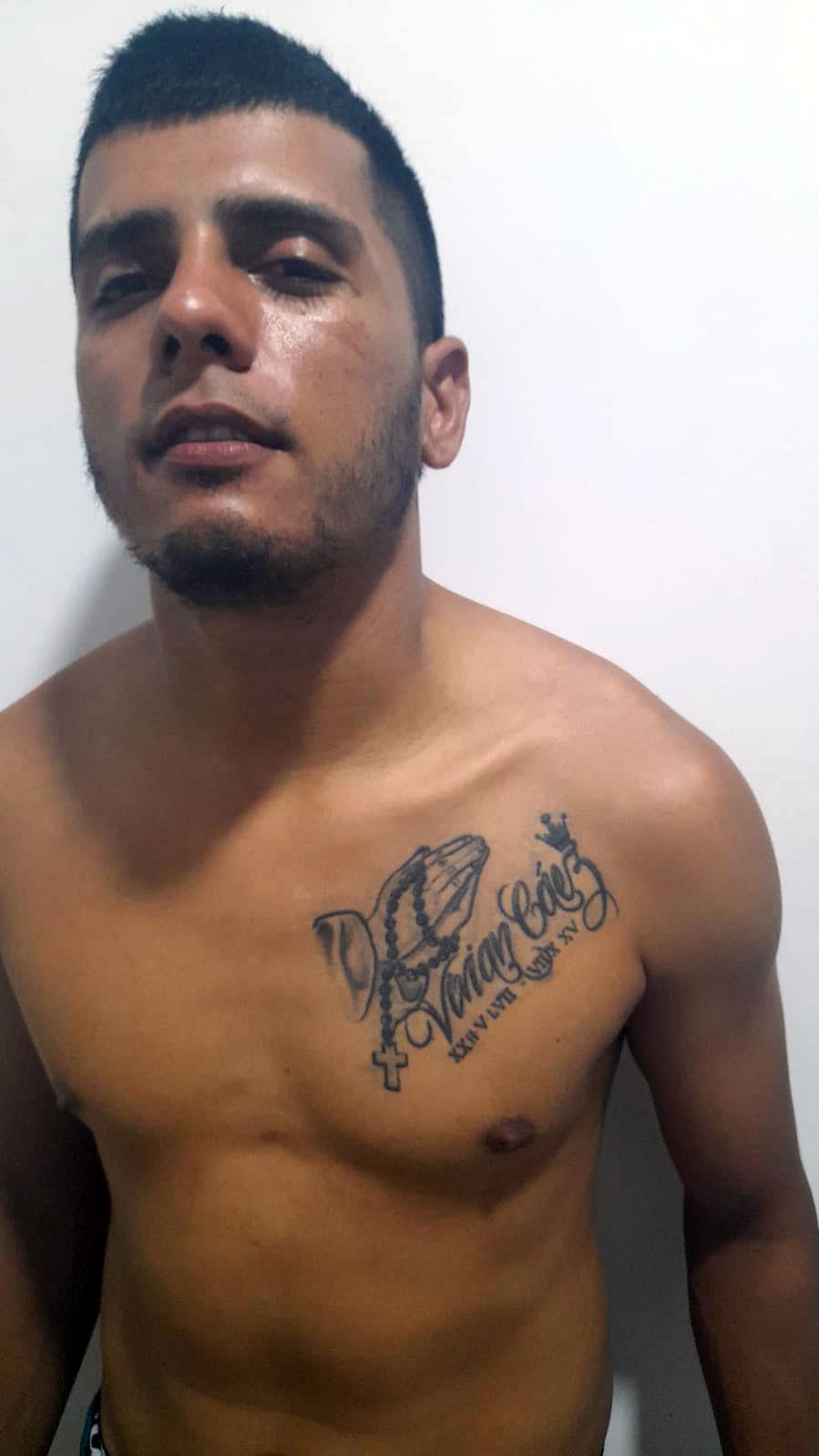
According to Potes, that was enough for police in El Salvador to be suspicious of his motives, and have him locked up with his friend, Manuel Castrillon.
“They accused us of being members of Barrio 18,” one of El Salvador’s main gangs, Potes said. “But that group doesn’t even exist in Colombia. It was outrageous.”
The young welder and his friend were transferred to a crammed prison in the town of Soyapango, where at one point, they stayed in a cell with no bathrooms. “There were only a few buckets to defecate in,” Potes said.
Potes said that many people had to sleep on the floor, due to the lack of space. “Those places are crammed with people,” he said. “The first few days we cried, and were very scared.”
More than 66,000 people have been imprisoned in El Salvador since March of last year, as President Nayib Bukele deploys emergency measures to curb gang violence.
“In many cases, detentions appear to be based on the detainees’ appearance or their social background,” said Leonor Arteaga, an expert on El Salvador with the Due Process of Law Foundation.
She added that most foreigners who have been arrested are held for a crime called “criminal association,” which basically means being a gang member.
“You can be on a corner [in] the community talking with two or three of your friends, and the police come and they arrest you because they think you were planning to commit some crimes,” Arteaga said.
The government of El Salvador has not published any stats on how many foreigners have been arrested during the state of exception.
But Potes, who was detained for four months, said he saw people of several nationalities while he was in prison, including Honduras, Panama, Guatemala and the Dominican Republic.
Potes said that in February, 72 foreigners, including himself, were transferred from the Soyapango prison to a smaller jail in the town of Jucuapa.
“That prison was only for international people,” he said.
US officials have also warned travelers about this crackdown.
In March, the State Department issued a travel advisory for El Salvador, which said that “several” US citizens had been arrested there in an “arbitrary manner.”
In May, US citizen Walter Huetes was detained in El Salvador, when he attended a party with some friends.
Huetes is a native of Los Angeles, who has Salvadoran roots. His wife, Jenny Bustillo, said that he was in the country to help his stepdaughter with a visa application.
“His arrest was totally arbitrary,” Bustillo said. “It looks like they grabbed him just because he has some tattoos.”
Huetes has a small cross on his wrist, and an LA Dodgers logo on his right hand. Like most people who are arrested under the state of exception, he hasn’t been allowed to call his family, although he has spoken to a US consular officer.
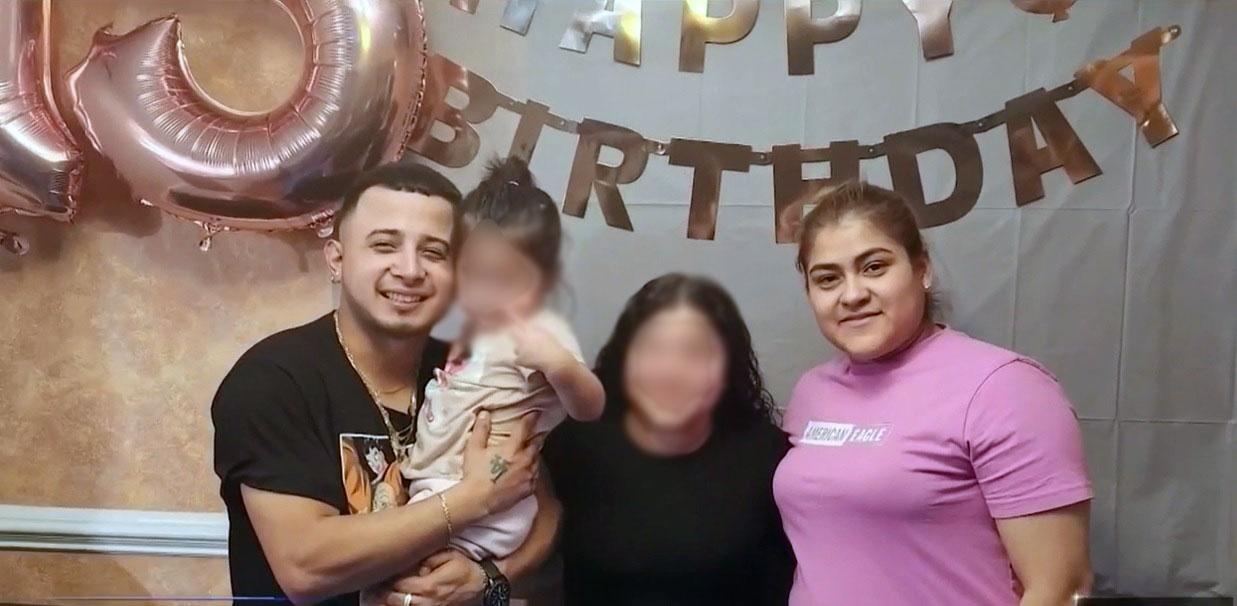
“What is happening is very unfair,” Bustillo said. “We are contractors and we have a new business. And it’s falling apart because he’s not here.”
In Colombia, Ana Muñoz also said that she is still waiting to hear from her husband, Andres Felipe Castañeda, who was arrested in El Salvador in December.
She’s only been able to confirm with Colombia’s consulate that her husband was detained and is in prison awaiting a trial.
“It’s very tough,” Muñoz said. “We have small children, and they ask about their father each day.”
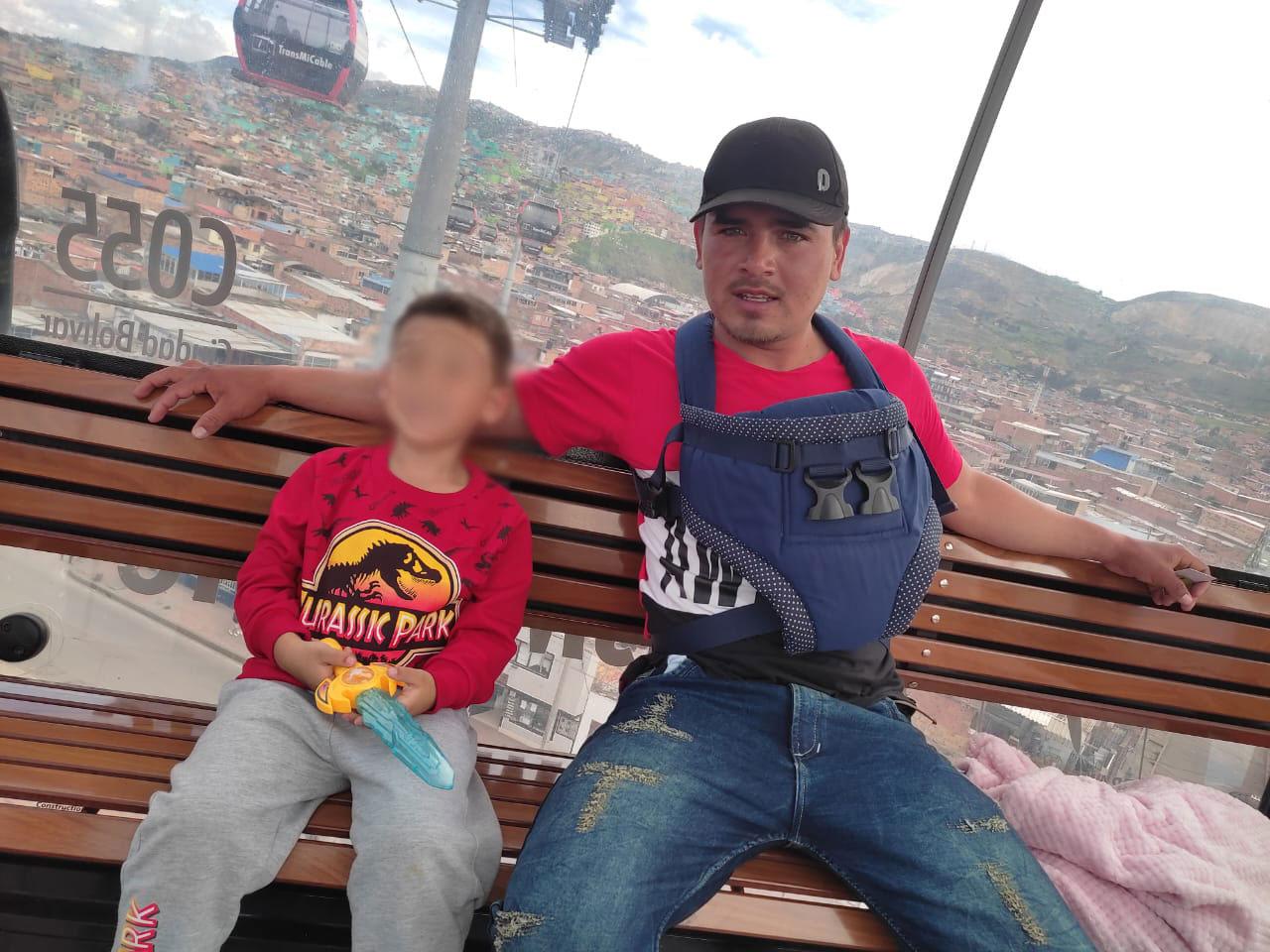
Despite these situations, President Bukele had a 90% approval rating in a poll conducted in March.
Arteaga worries that while Bukele remains popular, civil rights are deteriorating.
As elections approach in places like Guatemala and Ecuador, politicians there have said they want to emulate Bukele’s policies.
“For some people, that might not seem that important or that relevant,” she said. “But when you are a victim of this scenario with no rights, you see how high is the price that we pay.”
Those who have been on the receiving end of those measures have a warning.
“You don’t want to go there,” Potes said. “Thousands of innocent people are being locked up. And they won’t even let you call your mother.”
